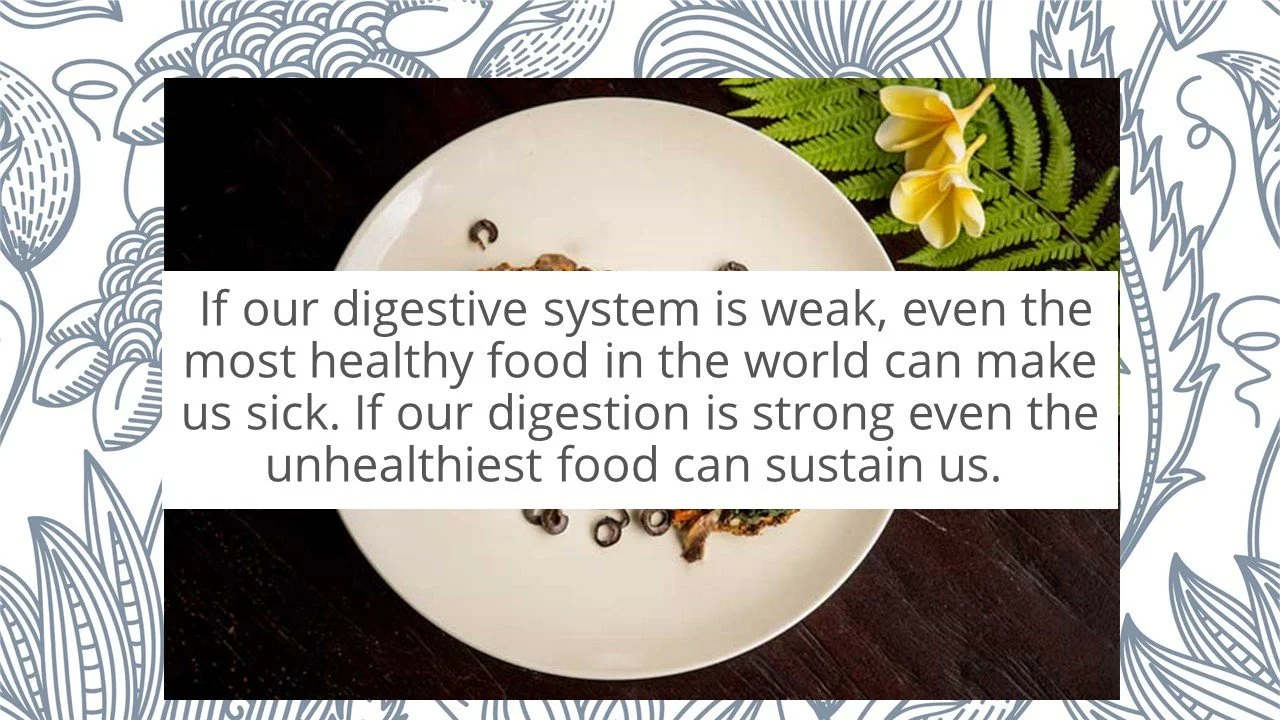A 5,000 Year Old Concept The Gut Brain Connection
I remember when the phrase “hangry” started being used frequently. It made me laugh, but it also was interesting to see who used it and when.
Today, scientists call the gut a “little brain” or the enteric nervous system (ENS). While this brain may not be able to do complex calculations like your big brain, it is comprised of two thin layers of more than 100 million nerve cells lining your gastrointestinal tract from esophagus to rectum. ref
Before I explored an Ayurveda lifestyle, I simply believed my state of discomfort after eating certain foods was normal. I would say things like, “I always get bloated after eating pasta” or “that makes me sleepy.” There was also, of course, the brain fog after eating large amounts of food, and the struggles with inconsistent stool.
Mental and physical health are not separate but deeply intertwined. Probably one of the clearest examples of this connection is the link between our thoughts and the digestive system, known as the gut-brain connection.
Ayurveda, through its concept of Agni, has suggested for 5000 years the quality of the interface with the external environment is a prediction of our health.
In fact the modern construct of the Gut-Brain Axis would in so many words, suggest that the interaction of the gut with food (a symbol of our external environment) affects mental conditions as well as tissue specific pathological states.
The Ayurvedic concept Agni is critically important to our overall health. Agni is the force of intelligence within each cell, each tissue, and every system within the body.
Ultimately, it is the discernment of Agni that determines which substances enter our cells and tissues, and which substances should be removed as waste.
In our next issue, we will explore what it means to be in balance and have a healthy Agni and strengthen our digestive system. We don’t have to suffer.


